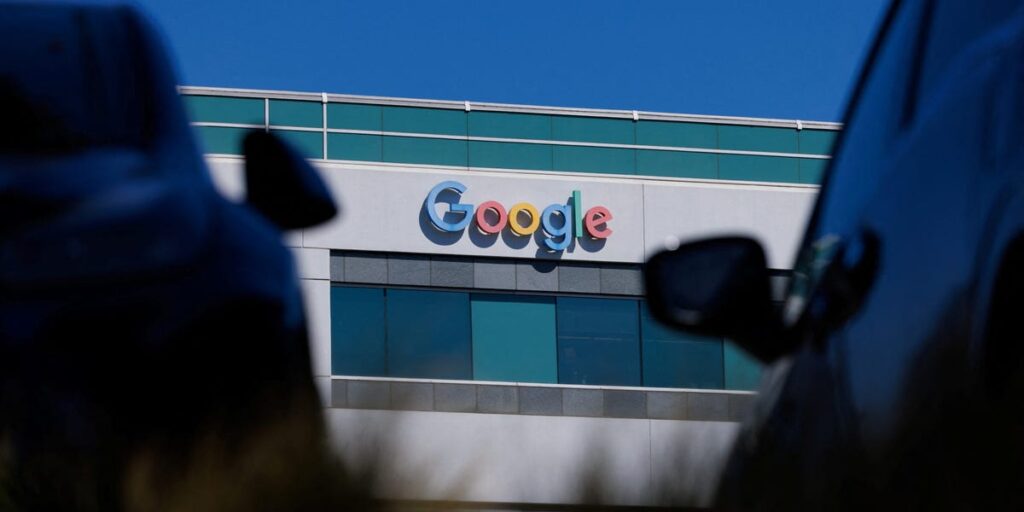Google has been spared from the worst, and the business and tech community is weighing in.
On Tuesday, Judge Amit P. Mehta ruled that Google will not be forced to divest from Chrome and its Android operating system, after Google was found in 2024 to have illegally maintained a monopoly.
In the 230-page decision, Mehta said that Google won’t be allowed to have an exclusive contract regarding the distribution of its search engines and apps and that the company must share information such as user interaction data and search index with competitors.
Sundar Pichai, CEO of Google parent Alphabet, argued earlier this year that the Justice Department’s proposed remedies were essentially a “de facto divestiture” of its search business and warned they would have “many unintended consequences.”
The DOJ and several states first sued Google in 2020, accusing it of monopolizing online search. Last year, US District Judge Amit Mehta ruled that Google had violated antitrust law, ruling that “Google is a monopolist, and it has acted as one to maintain its monopoly.”
Here is what business leaders, including some rivals to Google, have said since the Tuesday ruling.
Gabriel Weinberg
Gabriel Weinberg, CEO of DuckDuckGo, wrote in a statement on X that he doesn’t believe that the court-order remedies would “force the changes necessary” to address “Google’s illegal behavior.”
“Google will still be allowed to continue to use its monopoly to hold back competitors, including in AI search,” said Weinberg, whose company is considered a direct competitor to Google’s search engine.
“As a result, consumers will continue to suffer. We believe Congress should now step in to swiftly make Google do the thing it fears the most: compete on a level playing field,” Weinberg added.
Tim Sweeney
Tim Sweeney, CEO of Epic Games, wrote on X Tuesday evening that Google lost the search antitrust case, but “resoundingly” won the remedies phase.
“They can continue doing all of the stuff the court found unlawful, but with some minor new data sharing obligations limiting search default payoffs to 1-year terms,” said Sweeney.
Epic Games, the company that created Fortnite, won an antitrust lawsuit against Google and its app store practices in December 2023. In October 2024, a judge issued a nationwide three-year injunction requiring Google to allow rival app stores to be distributed via Google Play. Google was able to temporarily pause the injunction while appealing the case, but a federal appeals court later upheld the original verdict in July 2025.
“It’s like a defendant robbed a series of banks and the court verdict found them guilty, then sentenced them to probation under which they may continue robbing banks but must share data on how they rob banks with competing bank robbers,” Sweeney added in the thread.
Danielle Coffey
Danielle Coffey, CEO of the News/Media Alliance, told BI that this is a “missed opportunity,” but it’s not the end.
“We are disappointed that Judge Mehta’s ruling did not include an opt-out of AI without effectively disappearing from search,” said Coffey, “And that leaves us with little options in the use of our content and little to no revenue for our quality journalism.”
The News/Media Alliance submitted an amicus brief, hoping that newsrooms and other content-creating platforms could opt out of appearing in Google’s AI Overview without disappearing from search results altogether.
“There are statistics that show that we’re not seeing traffic come from AI overviews and AI mode,” said Coffey. “By its nature, it’s answering the question rather than redirecting the user.”
Google posted a statement after the ruling that the decision is a response to how AI changed the industry by giving people more ways to find information.
“This underlines what we’ve been saying since this case was filed in 2020: Competition is intense and people can easily choose the services they want,” Google said in a statement following the ruling. “That’s why we disagree so strongly with the Court’s initial decision in August 2024 on liability.
“Now the Court has imposed limits on how we distribute Google services, and will require us to share Search data with rivals,” the statement continued. “We have concerns about how these requirements will impact our users and their privacy, and we’re reviewing the decision closely.”
Adam Kovacevich
Adam Kovacevich, the founder and CEO of Chamber of Progress, a tech-industry coalition, wrote on X on Tuesday that Mehta’s decision is “mindful” even though “longtime Google haters” wanted “fantastical remedies.”
“His ruling today cited the MSFT precedent nine different times: Remedies must be ‘tailored to fit the wrong creating the occasion for the remedy,'” said Kovacevich.
“Mehta spent 29 pages of his ruling discussing how competitive the AI space has become, and how that threatens traditional search engines,” Kovacevich added. “It’s a reminder of how competitive innovation is a hare to antitrust law’s tortoise.”
Read the full article here


